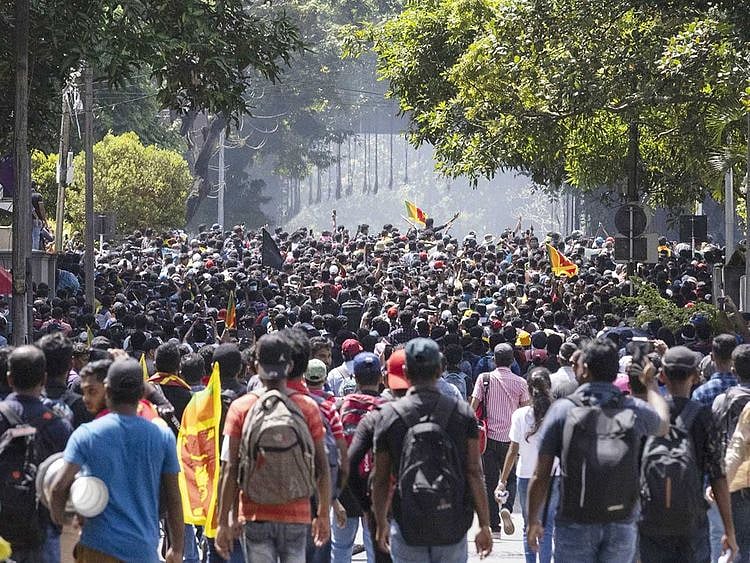Sri Lanka talks to move quite quickly when new leaders set: IMF
IMF said just days ago that higher authorities needed to be in place for talks to resume

Colombo: The International Monetary Fund assured that debt-restructuring talks with Sri Lanka will proceed “quite quickly” as soon as a new government is in place in the embattled nation.
IMF talks with Sri Lanka should see swift progress when a new finance minister takes the helm since the development bank’s team already has hammered out a lot of technical negotiations, Managing Director Kristalina Georgieva said in an interview Saturday with Bloomberg Television’s Haslinda Amin at the conclusion of the Group of 20 finance chiefs meetings in Bali, Indonesia.
“Of course we are very deeply worried about the people of Sri Lanka and we hope there would be the wisdom to come up with a government with authority to move the country out of this terrible crisis,” she said. “We have already seen the seriousness with which the debt adviser to Sri Lanka is looking into what would it take to have that resolution.”
The resignation this week of Sri Lankan President Gotabaya Rajapaksa was the latest episode in the troubled South Asian nation’s struggles after months of protests over soaring prices and fuel shortages. The IMF signaled just days ago that higher authorities needed to be in place in Sri Lanka in order for restructuring talks to resume.
“We have been reaching out to the biggest creditors to Sri Lanka to ascertain their commitment to engage, so we can have that resolution,” Georgieva said. “It would be better for the creditors to step forward, because then they have a better chance for the country to recover and for them to recoup more of their money.”
Sign up for the Daily Briefing
Get the latest news and updates straight to your inbox
Network Links
GN StoreDownload our app
© Al Nisr Publishing LLC 2026. All rights reserved.